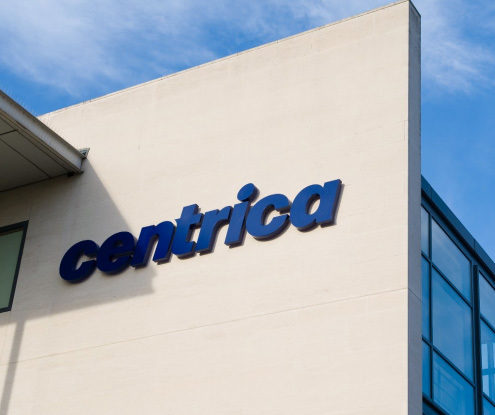
From Provident Financial Plc’s 66 percent plunge in a day to Carillion Plc shedding two-thirds of its value in three sessions, there’s been no shortage of drama in U.K. stocks this year.
The biggest losers of 2017 have been marked by sensational and rapid declines, while the winners — including Games Workshop Plc’s 266 percent rally — have been gradual triumphs. There was no unifying theme, though analysts suggested a degree of investor complacency and a lack of foreign buyers under the shadow of Brexit may have exacerbated selloffs.
Investors are “maybe not quite so well prepared for the surprises,” due to the overall quietness in stock markets, IG market analyst Chris Beauchamp said in an interview, noting that funds would rather cut the losers completely than give companies a chance to redeem themselves after profit warnings.
At the same time, the U.K.’s impending exit from the European Union has dissuaded overseas fund managers who may in the past have stepped in to buy stocks at bargain prices, according to London Capital Group’s senior market analyst Jasper Lawler. That’s making declines for individual U.K. stocks “specifically noticeable,” Lawler said in an interview.
Here’s a curated list of the FTSE All-Share Index’s biggest winners and losers of the year:
The Winners
Games Workshop: Up 266 percentThe maker of Warhammer figures upgraded profit expectations three times in 2017. The weak pound has made its products — tabletop miniature war games — cheaper for overseas customers, who account for more than half the company’s revenue. A positive reception for a new edition of board game Warhammer 40k, which takes the game out of its Lord of the Rings-style roots and into a far-future conflict, has also helped the stock.
KAZ Minerals: Up 135 percentThe Kazakhstan-focused copper miner has been rewarded for “exceptional project execution,” Macquarie analyst Alon Olsha said by email. Two new projects have ramped up “seamlessly,” which is rare in the mining industry. While copper’s gain this year has helped, “ultimately it was factors within management control that led to the stock more than doubling over the year,” Olsha said.
Sophos Group: Up 115 percentWith returns beating Silicon Valley-based cybersecurity peers, investors and analysts alike are bullish on Sophos’s cashflow and the high proportion of subscription revenue, which provides greater visibility on future growth. The company is Morgan Stanley’s European technology pick for 2018. Not to mention that Stifel analyst George O’Connor says there could be “a whole range of companies” who would be interested in acquiring it.
Wizz Air Holdings: Up 99 percentEastern Europe’s largest budget airline has been rewarded for its bullishness. It said in May it would add more capacity in its core Eastern Europe market and in November detailed plans to build a U.K. arm into a significant national operation in its own right. JPMorgan named it one of its top European airline picks for 2018 on the potential for further growth arising from the failures of Air Berlin Plc and Monarch Airlines Ltd.
NMC Health: Up 88 percentThe London-listed provider of healthcare in the Middle East has been added to both the FTSE 100 Index and Europe’s Stoxx 600 Index this year. Its also been active in M&A and partnerships, and is looking for more deals, according to its chief executive officer. Analysts are overwhelmingly positive, with 11 out of 12 who cover the stock calling it a buy, according to data compiled by Bloomberg.
The Losers
Carillion: Down 93 percentThree years ago, Carillion attempted a merger with Balfour Beatty Plc. Now its market capitalization is just a tiny fraction of its peer. The construction company has issued three profit warnings since July, brought in KPMG to look at its accounts, has been attempting to dispose of assets and may see in the new year by breaching its debt covenants. Rival Interserve Plc has faced similar problems writing down unprofitable contracts; that stock is down 74 percent this year.
Provident Financial: Down 68 percentCarillion won the race to the bottom, but Provident provided the most spectacular moment. The subprime lender fell 66 percent in a day in August on a “ quadruple whammy” of bad news: a regulatory probe into its Vanquis Bank credit-card unit, a profit warning, scrapping the interim dividend and its CEO stepping down. Just when it seemed things couldn’t get any worse, Provident said in December that car finance unit Moneybarn was being investigated.
Dixons Carphone: Down 43 percentAn unexpected forecast for a drop in annual profit in August hammered the mobile phone and electronics retailer. Analysts complained that the company didn’t address investor concerns earlier in the year. The retailer was squeezed by customers holding on to handsets longer, with a relative dearth of hot new devices meaning less appetite for upgrades. A new plan for the mobile-phone unit late in the year was welcomed, but only partially made up the ground lost.
Petrofac: Down 42 percentGetting investigated by the U.K.’s Serious Fraud Office is a sure-fire way to land on the losers list. Oil services firm Petrofac first flagged a bribery-related probe in May and, a few weeks later, suspended its chief operating officer. Later in the same disastrous month, Moody’s Investors Service cut the company’s credit rating to junk. RBC Capital Markets analyst Victoria McCulloch says the SFO probe will remain an “overhang” in 2018.
Centrica: Down 41 percentIt was already shaping up to be a difficult year for Centrica as the U.K. government touted plans to cap some household energy bills. But things went from bad to worse in November when shares in the owner of British Gas fell the most in two decades after a profit warning. The energy company saw U.K. customers desert and drew questions from analysts about the sustainability of its dividend.
